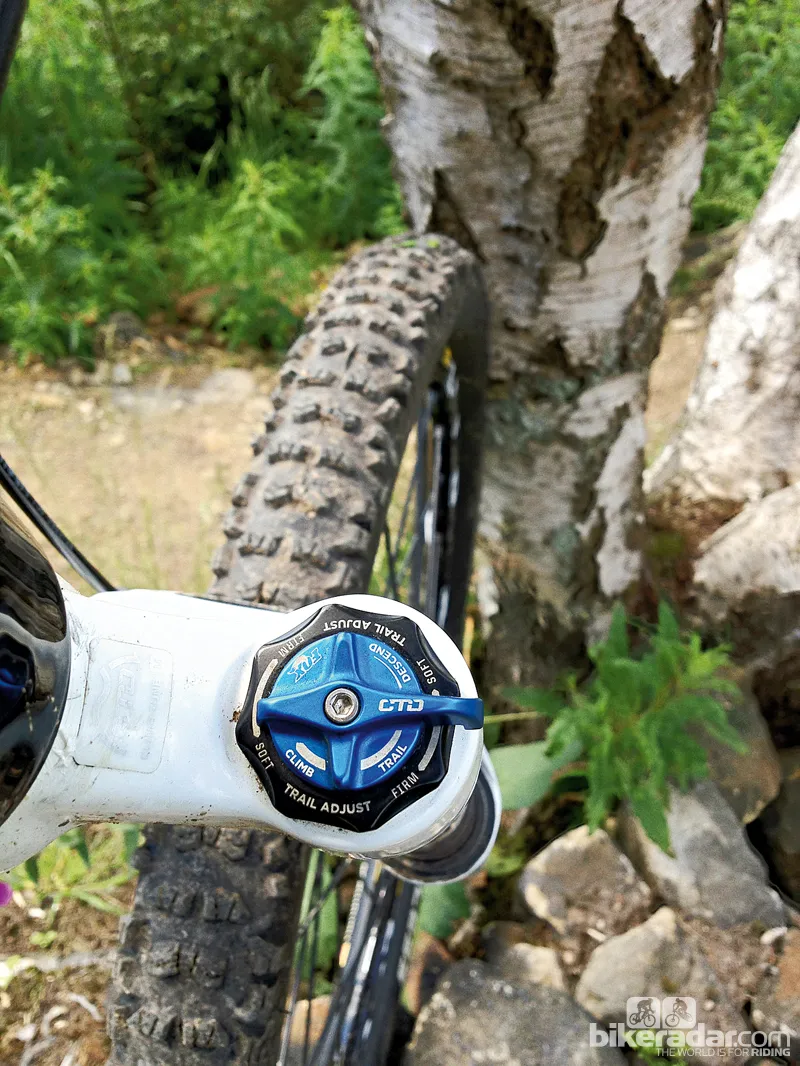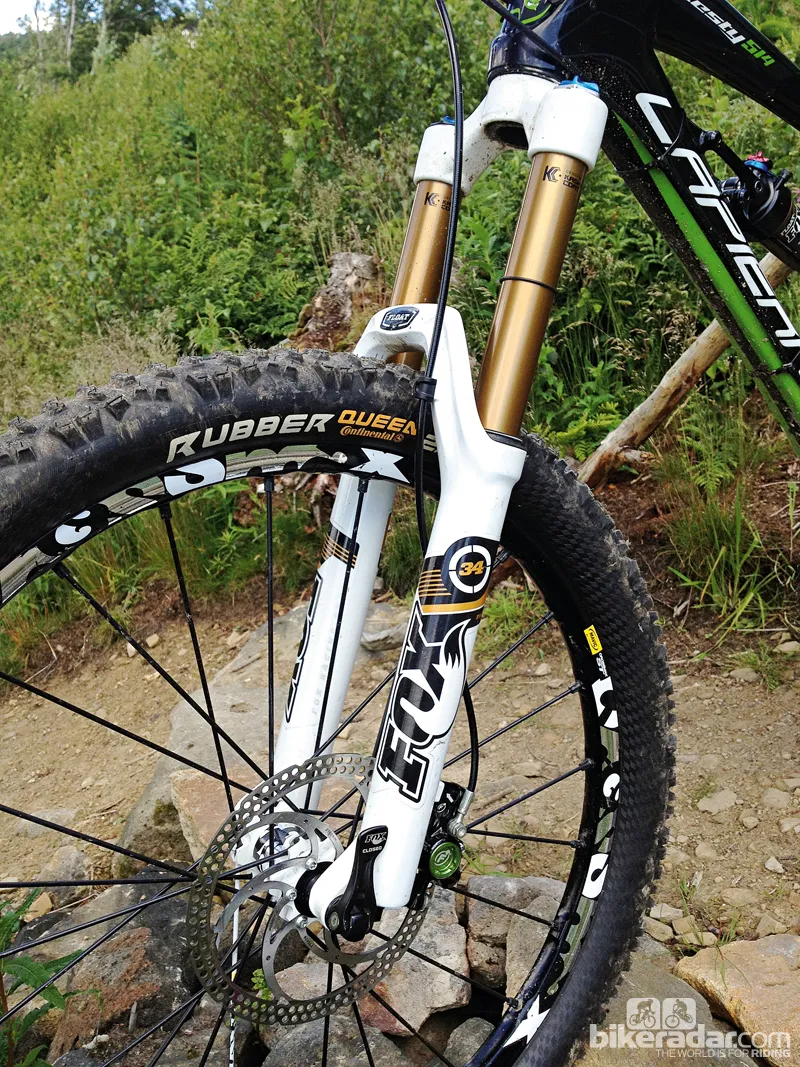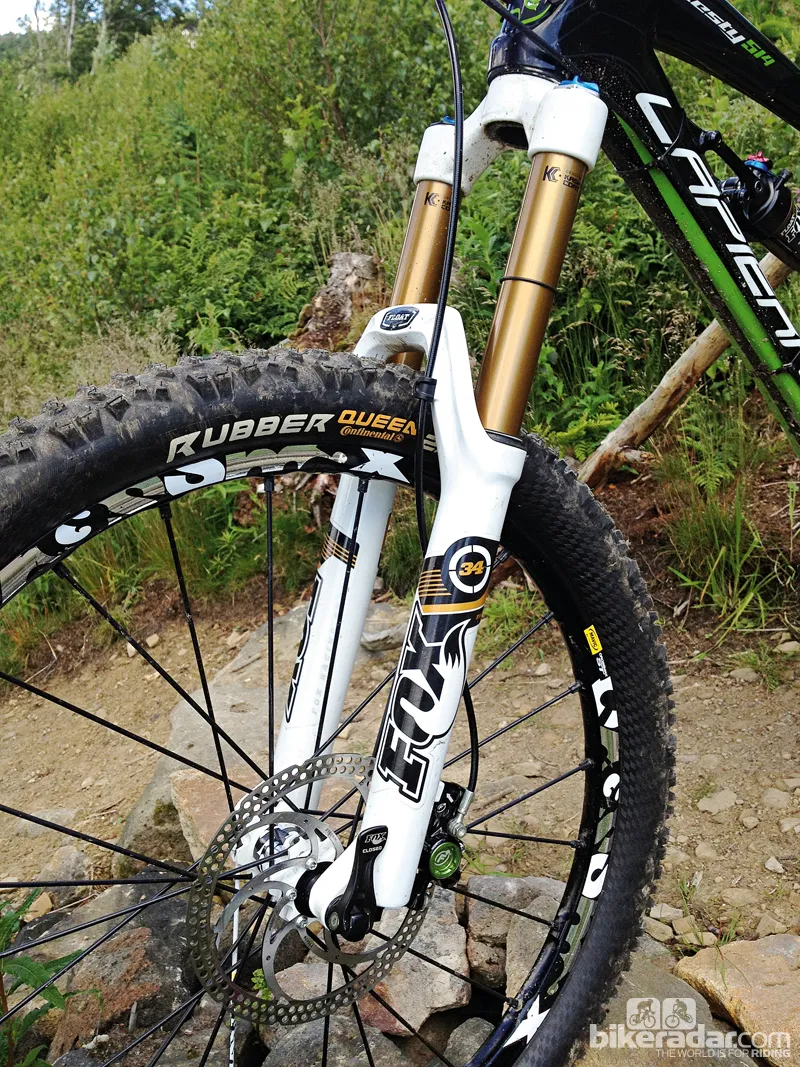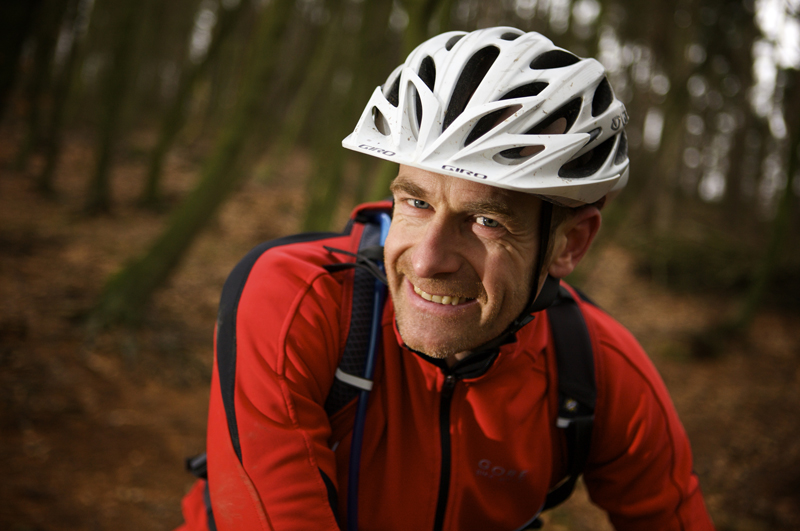Fox introduced their 34mm chassis to stiffen up longer legged 29er forks last year, but it’s now available in Float fixed travel and TALAS travel adjust versions in 26er (and 650b) forms. But who or what are these stiffer but significantly heavier forks for?
Workshop rig testing and swapping forks between runs shows the upsized chassis is a much stiffer, more feedback-rich fork overall than Fox’s 32, and more rigid than the best 32mm forks in terms of front-back and sideways flex.
In fact, while a much longer negative air spring means good sensitivity over small stuff, the structural stiffness makes it less comfortable and arm-pump prone than the 32 chassis.
While fork offset is similar to the 32, the 160mm stroke (it can be dropped to 150mm) tips the head back and raises the bottom bracket – we had to fit a shorter eye to eye shock to compensate.
At 1,964g cut-to-fit it weighs 200g more than an equivalent 32, but only 100g less than the mighty 36 Float. The new CTD damper moves well through three-point adjustment, from the more open ‘Descend’ damping segment into the firmer ‘Trail’ segment.

The Climb/Trail/Descend CTD selection area on the Fox fork
The revised spring rate is deliberately linear too, diving deep under heavy braking and lacking stability. Before we left our handover day with distributors and ace fork fettlers Mojo we’d already added 10 to 15cc of Float Fluid to the spring side to create a more progressive feel.
First impressions weren’t great. A few days in though, and we got it. The weight increase is offset by the fact you can still keep a 15mm front wheel. Once you’ve adjusted to the geometry change it immediately increases straight line and flat out cornering confidence and tracking is far more accurate than with a 32.
In combo with a high traction front tyre it dramatically tightens entry and exit lines, and while it’s not as comfy it lets you carry significantly more speed on rough trails.
The simplicity of CTD damping will be appreciated by most riders too. C for stand-up climbing. T with three settings from soft to firm depending on bike/riding style, for bob-free general riding. D for smooth descending. Or if you want a firmer carving/braking feel for race runs then use Trail ‘soft’.
Wherever you start from, the mid/deep stroke damping control of the Kashima smoothed stroke is superb and the stiffer stanchions mean no braking or cornering choke however hard you ride.
This article was originally published in Mountain Biking UK magazine, available on Apple Newsstand and Zinio.


